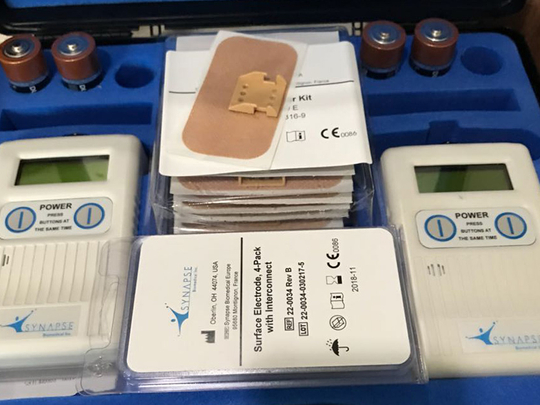
Abu Dhabi: A new technology may soon allow hundreds of patients on mechanical ventilation, including young children and those injured in road accidents, to have lives that are more fulfilling.
The first procedure to install a diaphragm pacing machine was performed in the capital on August 6 on a 32-year-old Emirati quadriplegic. The procedure, which takes about 30 minutes, now allows the patient to move around much more easily, thereby improving the quality of his life.
The surgery was performed at Burjeel Hospital Abu Dhabi by renowned American surgeon Dr Raymond Onders, director of minimally invasive surgery at University Hospital Case Medical Centre.
“This revolutionary technology will allow patients to have much richer lives, and will be truly beneficial for young children with neurological diseases that are quite prevalent in the region, including spinal muscular atrophy. In addition, it can be used for people whose spinal cords are injured in traffic accidents,” Dr Onders said.
The surgeon performed the same procedure on the late Chirstopher Reeves, Superman actor, who was paralysed from the neck down.
A ventilator is typically rather bulky, and is invasive because it requires the insertion of a tube through an incision in the windpipe. This incision also increases the risk of the patient’s death by pneumonia. In contrast, the diaphragm pacing machine is only minimally invasive as it is surgically attached to the patient’s diaphragm through a series of electrodes, while the machine can be controlled from the outside.
Dr Khalid Abdoeldahad, intensivist and critical care specialist at long-term care facility, ProVita International Medical Centre, said the patient who had received the machine was very enthusiastic about it.
“He has been on an artificial ventilator for 10 years, and really wants to be able to speak more easily. The machine also allows him to be taken to places without the extensive preparation required to transport a ventilator,” Dr Abdoeldahab said.
According to him, nearly 75 per cent of the patients at ProVita require artificial ventilation.
“Dr Onders has said a number of our patients could easily use diaphragm pacing machines, including some very young children,” he added.
The procedure to fit a diaphragm pacing machine is now available at Burjeel Hospital. Though it is expensive at $60,000 (Dh220,380), artificial ventilation costs more at $150,000 (Dh550,000) a year. In addition, patients who are able to be more mobile after a road trauma can also begin rehabilitation quicker, thus enhancing their long-term outcomes.












